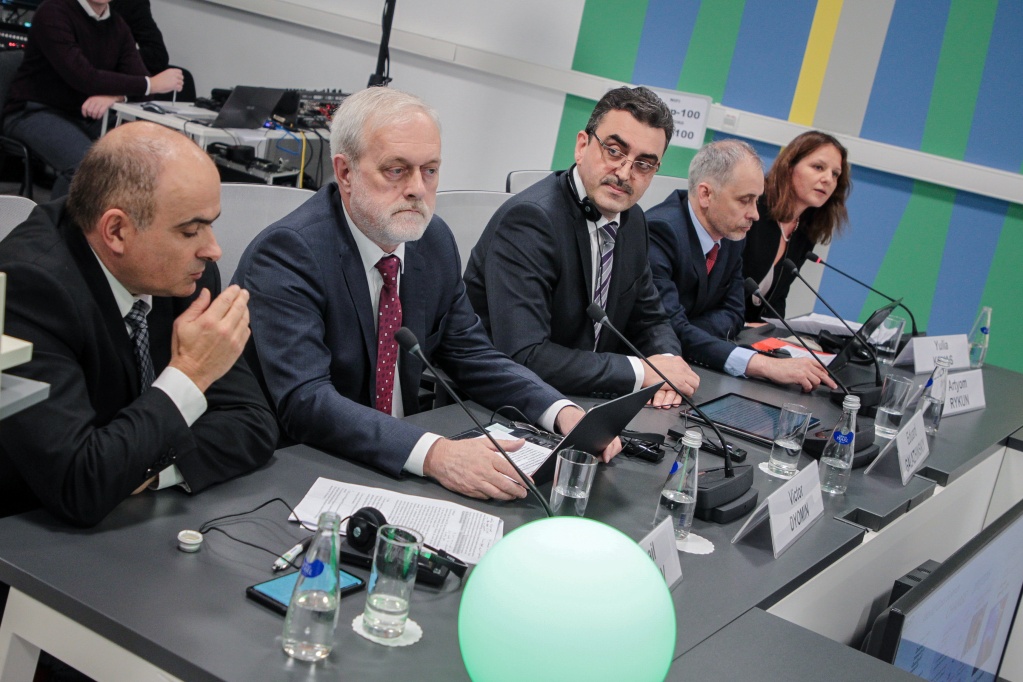TSU again has entered the leader group of Project 5-100, in a decision made by the Council for Competitiveness Improvement of the Leading Universities of Russian Federation. At the recent Council meeting in Kaliningrad, the 21 institutions of higher education in Project 5–100 reported on their progress on their road maps. The TSU team successfully presented the results of the past year and the plan for the university’s activities until 2020. The leader group is also includes Moscow Institute of Physics and Technology, National University of Science and Technology MISiS, Novosibirsk State University, Higher School of Economics, ITMO University, and National Research Nuclear University MEPhI.
– Our strategy, which we implement in Project 5-100, is that universities should develop their own ecosystems: build effective communication with industrial partners, including international ones, work productively with the authorities, and make the process of innovation production basic for universities. This enables TSU to be competitive in the global scientific and educational space, – commented TSU Rector Eduard Galazhinskiy. – I think it was precisely this practice-oriented approach that was appreciated by the members of the Council.
The assessment of universities had three parts: the implementation of the roadmap, the victory of the university in institutional and subject rankings, and the evaluation of Council members. In 10 minutes, the TSU team presented the results of this year and a vision of how the university will move forward. Then the council members asked questions on topics from the strategic vision and plans for the development of the innovation ecosystem to the very specific, for example, the number of international students and areas of education.
TSU’s development strategy until 2020 focuses on several key areas, one of the most important of which is the export of education. In defending the roadmap, it was noted that Tomsk State University is among the top five Russian universities that are leaders in online education. TSU’s arsenal includes more than 60 original courses, which are attended by residents of 183 countries. According to statistics from international online platforms, TSU is located in the world’s top 30 most efficient online course developers (MOOC), which also includes MIT and Stanford University.

At the same time, TSU shows a steady growth in offline education: the university has launched new English-language undergraduate and graduate programs that are attracting more and more international students. Now the university has students from 65 countries, and their share in the total number of students of all forms of education is 19.2 %; by 2020 it will be 25%.
One of the tools for developing the export of education is creating advanced teaching technologies. TSU has created the Research and Educational Center Institute of Advanced Educational Technologies as a platform for interdisciplinary research. The results will support new methods and products for education that combine the capabilities of artificial intelligence to prepare successful specialists for the country’s digital economy.
Another strategically important area for TSU is strengthening interaction with partners in industry, which helps speed up the transfer of innovations to new technologies. In 2018, TSU is implementing about 300 R&D with Russian and international companies, including the German national synchrotron center DESY, the Swiss new product development center CDNP, SIBUR, Rostec, Roskhimzashchita, and others. In addition, partners are involved in creating TSU educational programs. This enables us to improve the practice-oriented training and competitiveness of graduates.
– International rankings show that the recognition of Tomsk State University in the world space has increased significantly. This has been facilitated by TSU’s participation in international collaborations and its creation of its own projects on network interaction. For several years, TSU has been collaborating with CERN, and now it is a part of the ATLAS, TOTEM, and CMS projects, – explains Ivan Ivonin, TSU Vice-Rector for Research. – One of the largest collaborations in which the university is involved is the international program for monitoring climate change in the Arctic, INTERACT. Among the scientific associations created under the auspices of TSU is the international network SecNet that brings together Russian and international researchers engaged in the study of Siberia and other northern regions.